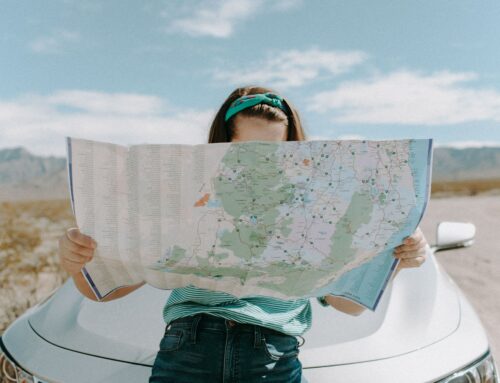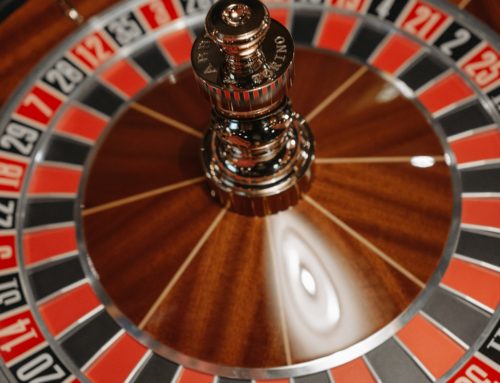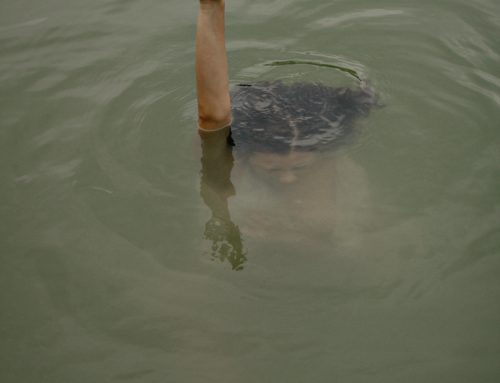How should we address climate change at work? Part 1 – thinking about it.
November 23, 2021
This is the first of a two part series on the key topic of our age, the climate crisis. Specifically, looking at it in the context of work. Your immediate reaction might be “Really, do I have to? It’s bad enough when it’s on the news and I have got quite a lot on right now”. I get it. I feel similar. But here are two reasons why I think it’s worth looking at the subject:
It will affect you
Over the next decade or so, maybe sooner, climate change is going to affect everything – geopolitics, the global and domestic economy, supply chains, consumer behaviour, technology, travel patterns, employee expectations, inter-generational conflict. You name it, there’ll be (or, in many cases, already is) an environmental issue in there somewhere. No matter what kind of organisation you work in – large or small, public, private or voluntary sector – there are strategic threats and opportunities that arise from the climate crisis. Smart organisations will consider these sooner rather than later.
You can affect it
Avoiding climate catastrophe will take massive, systemic change at a national and international level. That kind of change does not happen at the level of the individual. As a small example, I have no off street parking, so cannot buy an electric car until there is better charging infrastructure in place. And even if I could, it makes little difference until the electricity is generated from renewables. Systemic change involves society, governments and organisations. The people I work with have influence. They are leaders, advisors, investors. They (you?) are likely to have more influence and impact on environmental issues in their professional lives than their personal lives.
Don’t make me look
So that’s why I think it’s important to look at climate change in a work context, but before we can get to the stage of working out what we might do, we first have to engage with the issue. And let’s be honest, most of us don’t really want to. I applaud my friends and colleagues who are further down this road, but I don’t think they are the majority yet. So this month I want to look at what stops us from thinking about climate change and how we might bring ourselves to engage with it.
The blockers
There are some well-researched cognitive biases which affect our thinking in general and I think are at play here. They include:
Optimism bias
Humans have a tendency to assume it’ll all work out fine in the end. When I first heard about optimism bias, I found it hard to square with the brain’s well-known negativity bias until I realised that one is about the past and the other the future. We dwell on negative events that have already happened but tend to be more optimistic about how things will turn out. Think back to the early spring of 2020. When we saw reports of the pandemic in China, and even in Europe, many of us couldn’t imagine ourselves in that situation.
Inability to link our current and future selves
Add 25 years to your current age and try to imagine that person. It’s not easy, is it? It’s like we’re thinking about someone else, which makes it harder to do things to support our future selves. Apparently, language structure makes a difference. Some languages have less separation between past, present and future tenses and research suggests speakers of those languages do more to protect their future selves, such as saving for old age and protecting their health.
Fear of loss
We are wired to defend what we already have. In the event of an environmental breakdown, we stand to lose pretty much everything – breathable air, drinkable water, temperatures it’s bearable to live in etc. But these are things we take for granted. When I think about climate change, one of my first thoughts is “What will I have to give up?”. Can I fly? Will I ever see my sister in New Zealand again? What about the car? It all feels like sacrifice and my fear of loss kicks in.
Peer behaviour
We’re all much more influenced than we realise by what other people do, particularly other people like us. I do know some committed environmentalists but most people I know, personally and professionally, don’t talk about the environment much. If our peers aren’t doing anything yet, maybe we don’t need to either?
Social awkwardness
Climate catastrophe is a bit of a downer, so who wants to talk about it, beyond a quick “Oh yeah, it’s awful isn’t it? What can you do? So anyway how’s your new kitchen coming along?”. It would be like someone in a Jane Austen novel banging on about the slave trade. We collude with each other not to mention unpleasantness.
Avoidance of complexity
Climate change is a huge and complex subject. Most of us are not scientists. It is difficult for us to pick our way through the mass of information – and disinformation – to make sense of it. And if we want to actually do something, we add another level of complexity to our decision making. Our brains try and avoid that kind of hard work, so it’s easier to just not think about it.
Emotional overwhelm
If you do really start to face up to the reality of the situation, it’s overwhelming. It evokes strong emotions – terror, rage, guilt, hopelessness. I’d suggest that if it doesn’t evoke strong feelings, you’re not looking hard enough. Sometimes we experience situations that make us feel terrible. But if it’s not happening right now, why would we put ourselves through that?
The age of denial
All of the factors above keep us in a state of collective denial. I don’t mean outright climate change denial. There are very few people who don’t accept what is happening. The kind of denial we’re in is more like a chain smoking, junk food eating, alcoholic. We know we can’t go on like this forever but we’re not ready to do anything about it. I’ve written about this kind of denial before. Based on those ideas, here are some suggestions on how to nudge yourself from denial to action:
Be gentle with yourself and others
Research suggests that the more confrontational you are with people in denial, the more they resist. Lecturing yourself (“I really should…”) and others will probably backfire. Explore, read, watch some documentaries, think about the future you’d like to create for future generations. Go into it with curiosity and openness not rigidity and guilt.
Be prepared for strong feelings
Friends who started exploring these issues sooner tell me that they’ve had phases of grief, guilt or rage and come out the other side. It takes courage to face up to reality. Pace yourself, look after yourself. Find that balance between properly engaging with the topic and not getting engulfed in it. It is still ok to have fun.
Re-engage with nature
Being in nature has proven benefits for your wellbeing. That’s a bonus, but not the key reason for doing it. Since I started to think about the environment more, I’ve noticed a subtle shift in my perception of the natural world. I’ve stopped seeing it as a kind of theme park full of wholesome attractions – lovely view, cute animal, majestic tree – and started wondering what is actually going on out there. What is that bird actually doing? Why did that tree fall and is it part of a natural cycle or a bad sign? I have no answers but my curiosity feels like progress. I’m starting to see the natural world as something I’m part of, which needs protecting, rather than something separate which I visit.
Don’t lose hope
A very easy place to go after denial/avoidance is hopelessness. What can I do as one person? Are we all doomed? Is there any point in doing anything? The best remedy I can suggest for this is to look for the environmental good news stories. They do exist. There is a glorious series on BBC iPlayer at the moment, called The Age of Nature, which documents examples from all around the world of nature regenerating. I found it uplifting and hopeful among all the gloom.
So there you go, an invitation to join me in stepping out of our collective denial and starting to engage with the most urgent issue of our age. Next time – what shall we actually do?
If you fancy a chat with someone who is still feeling their way in the green arena, do get in touch: caroline@carolinegourlay.co.uk
Photo by Danya Gutan from Pexels






Very nice write-up. I definitely appreciate this site. Thanks!
https://www.philadelphia.edu.jo/library/directors-message-library
I have read so many posts about the blogger lovers however this post is really a good piece of writing, keep it up
whoah this blog is wonderful i really like reading your articles. Keep up the great paintings! You realize, a lot of people are hunting round for this info, you could help them greatly.
Great selection of modern and classic books waiting to be discovered. All free and available in most ereader formats. download free books
I recently came across your article and have been reading along. I want to express my admiration of your writing skill and ability to make readers read from the beginning to the end. I would like to read newer posts and to share my thoughts with you.